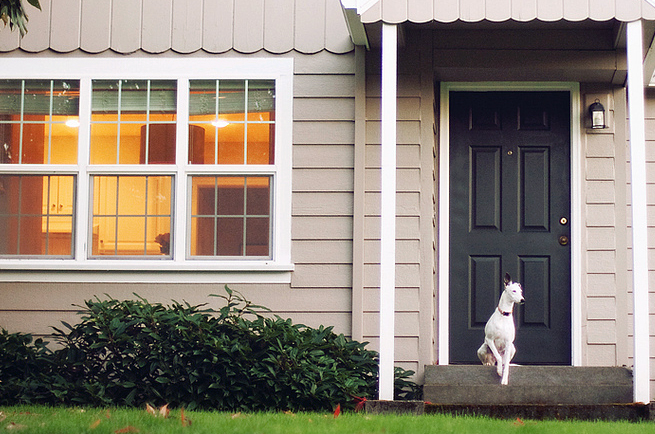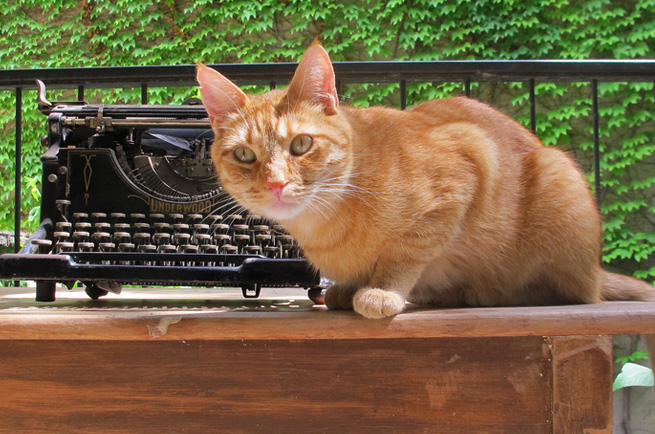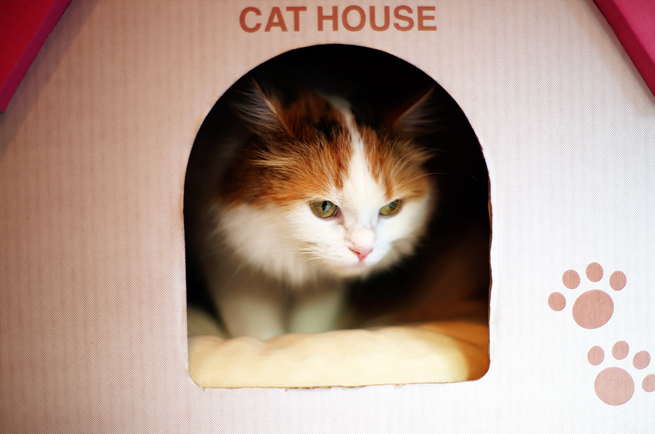Tips for talking to your landlord about getting a pet
Finding a landlord who will allow pets can be a challenge, so we've put together some tips to help you talk to your current or future landlord about renting with a cat or dog!
12 Feb 2016 By Zahra Gaitskell Comments

If you already own a cat or dog this will obviously shape your search for a suitable place to rent and while it would be great if lots of places advertised as “pet friendly”, it’s more likely that you’ll need to convince your prospective landlord to allow you to bring your cat or dog with you.


Finding a new rental to accommodate your furry pal
1. Get together all the references you have about your viability as a tenant, like records of payments and credit rating, the health and behaviour of your pet, like vaccination, micro-chip and de sexing records and if possible references from previous landlords who have housed you and your furry friend.
2. Be open about what you're looking for, it is unlikely to go down well if you announce you want to bring your cat just before signing on the dotted line. Let the landlord know when you make your application that you would love to rent the property, have a well-behaved cat or dog and any details about size, breed or temperament that may be appropriate as well as the references discussed above.


3. Get the real estate agents on your side. Be sure to talk to the people advertising rentals, explain your situation, bring your references and if you like, even let them meet your cat or dog. If the agent sees you as a good tenant they may be able to talk to landlords on your behalf and help convince them to let you bring your pet along too.
4. A landlord may be willing to consider your pet but they might need some extra assurances to agree to the lease. Try and find out what they are concerned about specifically, for example if you have a cat they may be worried about scratching—if so, show the landlord what you will do to prevent it. In this case you could offer to replace upholstery if required in a furnished house, to provide enough scratching posts, or alternatively to supply covers or bring your own furniture. If you have a dog you might offer to keep them outside while you are not home to ensure the condition of the house, and in any case you can offer to pay more bond or a slightly higher rent if you are able to do so to cover any incidental damage even the most well-behaved pet may cause.


5. Make sure that the properties you are looking at are suitable for the request you're making and give yourself enough time to find the right place. Landlords are more likely to agree to a well thought through request where the property matches the needs of you and your pet.
6. Finally, have a back-up plan. What will you and your cat or dog do if you are unable to find the right property? Is there someone who will care for and love your animal if you cannot? Is there a time by which you need to have a new place with or without your pet? Make sure you have this worked out ahead of time in order to make the best of a potentially bad situation.


Convincing your current landlord to allow a pet
If you're already living in a rental and would like to get a pet, there's a few things that could help:
1. If you're in an apartment building try talking to the individual members of the body corporate or strata board to state your case—or even better get on the board yourself!
2. Building a relationship of trust is really important; if you're prompt with the rent, clean and tidy and your landlord trusts you with the property this will make it much easier to convince them you will also be a responsible pet owner.


3. Be prepared to negotiate on the type of pet so that it is suitable for the property you are in. If you would like a dog and live in an apartment your landlord might be open to a small dog, like a Pug or French Bulldog, but is much more unlikely to consider a bigger, high-energy breed like a Labrador or Border Collie.
4. Be sensitive to the landlord’s feelings. They may have had bad experiences with pets previously and may require some assurances or extra conditions to your current renting arrangement to agree. For example, if they are worried about damage to property offer to pay extra bond. If they're worried about fleas, offer to organise a specialised cleaning service when you leave.


5. Sometimes a landlord will simply not entertain the prospect of pets, no matter how hard you try to convince them otherwise. It's their property and their right to do so. If this is the case there's not much you can do, so your next move should be looking into pet-friendly accommodation at the end of your lease.
12 Feb 2016 By Zahra Gaitskell Comments
comments powered by Disqus




